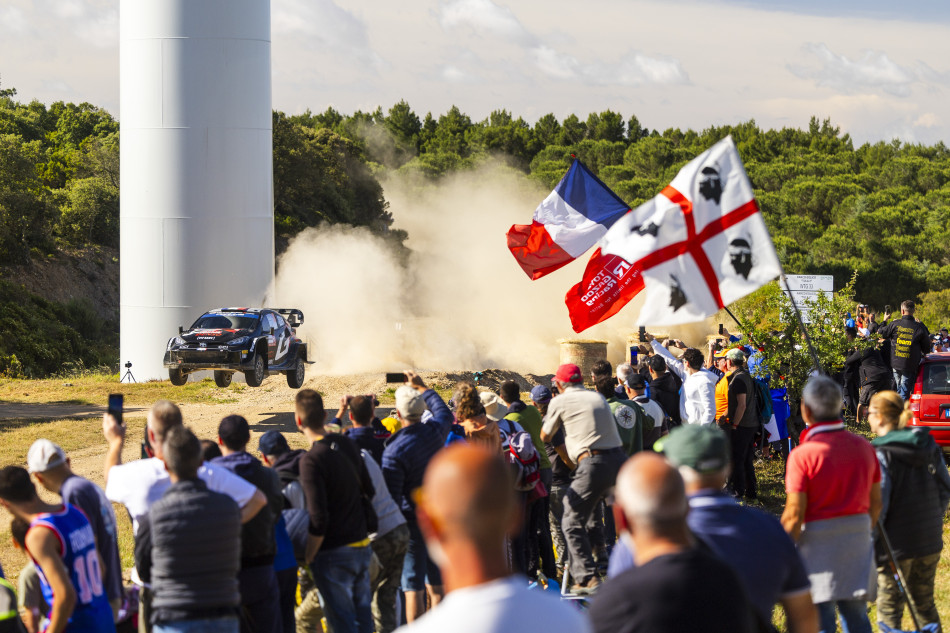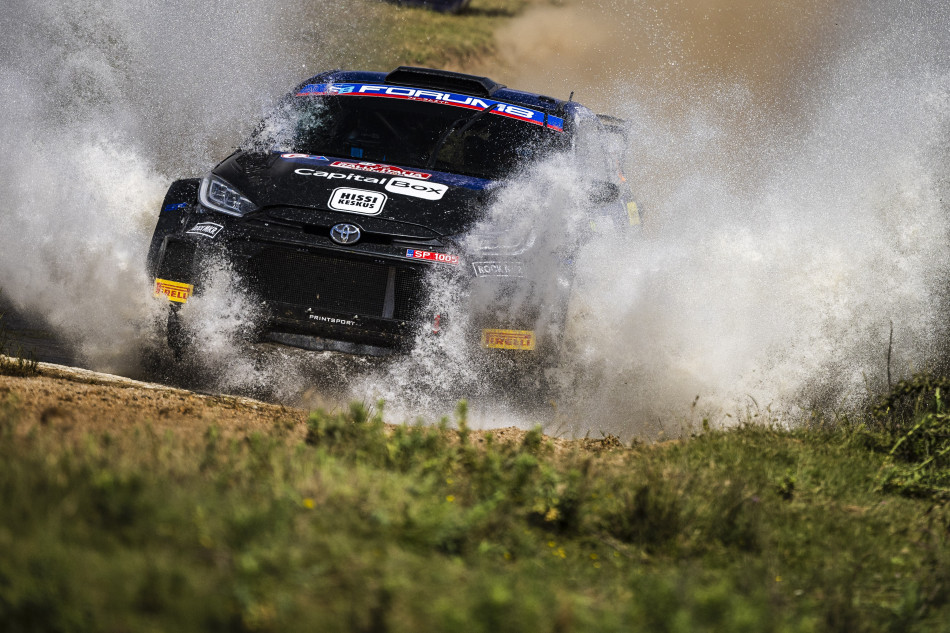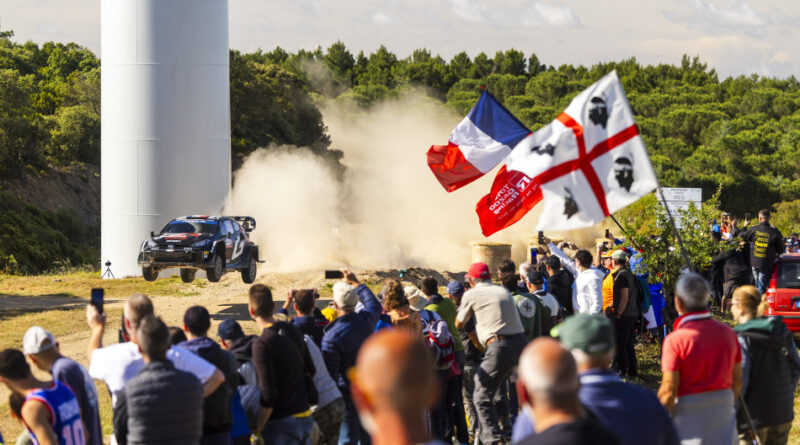WRC – Ogier claims Saturday lead ahead of Tänak on Rally Italia Sardegna
2024 Rally Italia Sardegna – Saturday report

Sébastien Ogier is on course to claim a remarkable third FIA World Rally Championship victory in succession after distancing Ott Tänak on Saturday’s gruelling second leg at Rally Italia Sardegna.
The eight-time WRC champion will start Super Sunday with a 17.1sec advantage over Hyundai i20 N rival Tänak after a turbulent day which included four lead changes and saw championship leader Thierry Neuville bow into retirement.
Fortune initially favoured Tänak when overnight leader Ogier’s decision to carry only one spare wheel for the morning tests backfired. A deflated tyre forced him to use the same set of rubber for three increasingly rough and abrasive stages and, after trading positions three times, he trailed the Estonian by 3.5sec at the mid-leg tyre fitting zone.
In the afternoon’s legendary stages around Monte Lerno, however, Ogier threw caution to the wind. With Tänak’s pace fading and the 2019 title winner hinting that he was being instructed to play it safe, Ogier stormed back into the lead after just one stage and proceeded to post a trio of benchmark times in his GR Yaris.
A successful Sunday for Ogier would follow back-to-back victories in Croatia and Portugal, and could see the Frenchman confirm his place as the most successful driver in Rally Italia Sardegna history.
“It has been a positive day, and an even more positive afternoon,” he smiled. “This morning’s stages were very rough, but I enjoyed the afternoon so much more and it was a pleasure to drive the car.”
Thierry Neuville arrived in Sardinia with a 24-point championship lead over Elfyn Evans and looked set to increase that margin after climbing from fifth to third early in the day. However, his podium hopes went awry when he misjudged a braking point in SS8, sliding his Hyundai off the road and into retirement.
Takamoto Katsuta was elevated to the podium as a result, but the Japanese driver’s time inside the top three was short-lived. His Toyota developed a transmission issue which proved terminal on SS9.
The drama up front opened the door for Dani Sordo to complete the leading trio in another Hyundai. Despite struggling to find his rhythm, the Spaniard trailed team-mate Tänak by almost two minutes with Evans a further 30.5sec behind. Grégoire Munster rounded out the top five in an M-Sport Ford Puma.
In sixth overall, Sami Pajari extended his WRC2 lead to almost one minute in a Printsport-entered GR Yaris but it was championship leader Yohan Rossel who was raising eyebrows on Saturday.
Pajari, who is co-driven by Enni Mälkönen, grew his overnight advantage from 18.3sec to 54.7sec on the penultimate day of this sixth FIA World Rally Championship round, closing in on what looks increasingly likely to be his maiden victory with Toyota machinery.
The Finn had a weight lifted off of his shoulders early in the day when Pierre-Louis Loubet, who had been second, dropped almost two minutes after stopping to change a wheel.

Grabbing the headlines on Saturday was championship leader Yohan Rossel, who started the rally on the back foot with a wheel change on the opening morning.
Rossel delivered one of the most stunning comeback drives in recent memory to climb from 15th to second overall in the WRC2 category, gaining almost 1min 20sec on Pajari and winning every single stage.
Just 12.0sec behind Rossel and on course for his second podium in as many rallies was Spain’s Jan Solans, driving another Toyota. Fourth place went the way of Škoda Fabia RS Rally2 pilot Kajetan Kajetanowicz while Martin Prokop and Robert Virves, both driving similar cars, completed the top six.
Pajari heads Solans by 1min 6.7sec in the WRC2 Challenger category. In the WRC Masters Cup, Armin Kremer is a comfortable 4min 25.8sec clear of Frenchman Pierre Lafay.
Sunday’s finale is based north-west of Alghero and includes two loops of two tests, ending with the bonus points-paying Wolf Power Stage, which finishes amid spectacular views of the Mediterranean Sea. The four stages cover 39.30km.

